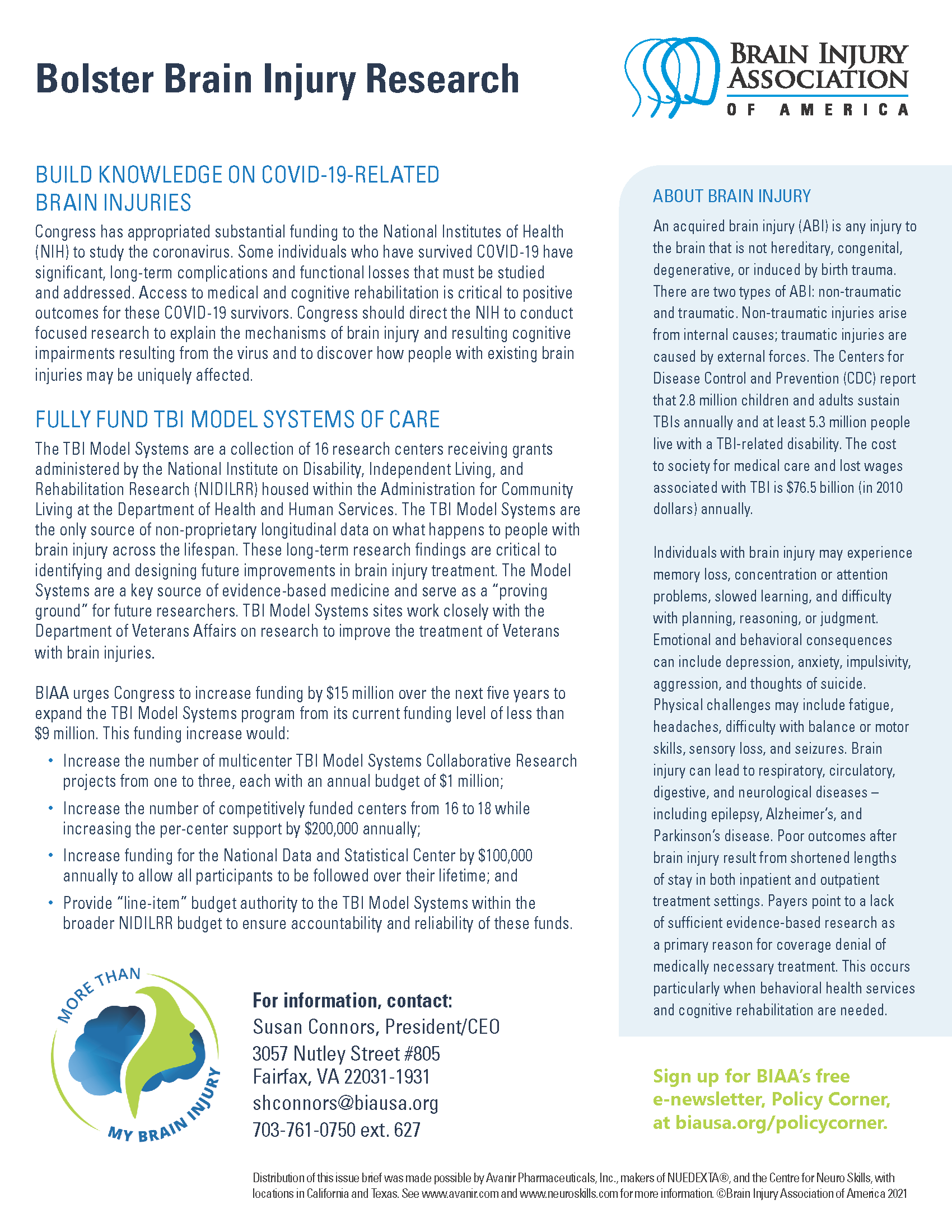2021 Legislative Issue Briefs
Categories: Public Policy
Each year, the Brain Injury Association of America releases updated Legislative Issue Briefs detailing the critical public policy issues of importance to people with brain injury. Advocates are encouraged to use these materials when working with national, state, and local government officials to educate them on topics ranging from access to care, research, and the Congressional Brain Injury Task Force. Click here to find your elected officials.
Advocacy To-Do List for Brain Injury Awareness Month:
- Download the 2021 Legislative Issue Briefs.
- Click here to find your elected officials.
- Register for our virtual Brain Injury Awareness Day briefing.
- Learn about the new #MoreThanMyBrainInjury campaign and download materials to share online.
What Elected Officials Should Know About Brain Injury:
An acquired brain injury (ABI) is any injury to the brain that is not hereditary, congenital, degenerative, or induced by birth trauma. There are two types of ABI: non-traumatic and traumatic. Non-traumatic injuries arise from internal causes; traumatic injuries are caused by external forces. The Centers for Disease Control and Prevention (CDC) report that 2.8 million children and adults sustain TBIs annually and at least 5.3 million people live with a TBI-related disability. The cost to society for medical care and lost wages associated with TBI is $76.5 billion (in 2010 dollars) annually.
Individuals with brain injury may experience memory loss, concentration or attention problems, slowed learning, and difficulty with planning, reasoning, or judgment. Emotional and behavioral consequences can include depression, anxiety, impulsivity, aggression, and thoughts of suicide. Physical challenges may include fatigue, headaches, difficulty with balance or motor skills, sensory loss, and seizures. Brain injury can lead to respiratory, circulatory, digestive, and neurological diseases – including epilepsy, Alzheimer’s, and Parkinson’s disease. Poor outcomes after brain injury result from shortened lengths of stay in both inpatient and outpatient treatment settings. Payers point to a lack of sufficient evidence-based research as a primary reason for coverage denial of medically necessary treatment. This occurs particularly when behavioral health services and cognitive rehabilitation are needed.
Interested in learning more about advocacy? Read this article on being an advocate and sign up below for Policy Corner, BIAA’s weekly e-newsletter, to become part of our grassroots network.

